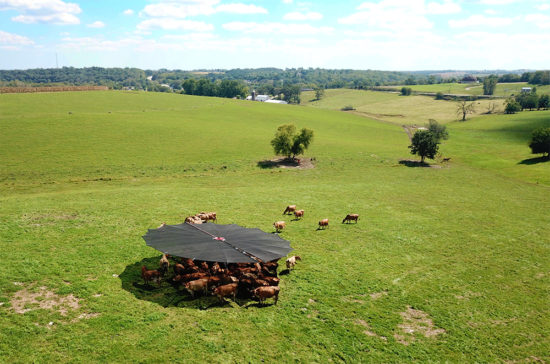 “A paradigm shift from industrial agriculture to diversified agroecological systems is more urgent than ever,” states the International Panel of Experts on Sustainable Food Systems (IPESF) in its Communiqué, COVID-19 and the crisis in food systems: Symptoms, causes, and potential solutions.
“A paradigm shift from industrial agriculture to diversified agroecological systems is more urgent than ever,” states the International Panel of Experts on Sustainable Food Systems (IPESF) in its Communiqué, COVID-19 and the crisis in food systems: Symptoms, causes, and potential solutions.
The Covid-19 pandemic has indeed exposed flaws in our current food system that relies heavily on Concentrated Animal Feeding Operations (CAFOs) and large-scale meat processing facilities that put the health and safety of its workers, their families and the greater community at risk.
That’s evident at the Smithfield plant in Sioux Falls, South Dakota, which processes 5% of U.S. pork. Smithfield was forced to close its facility in mid-April after 518 employees tested positive for the virus. It also closed its plants in VA, MO and WI. COVID-19 caused closures of Tyson, JBS, Hormel and other pork, poultry and beef processors around the country. According to The Midwest Center for Investigative Reporting, “As of April 27, there have been at least 4,135 reported positive cases tied to meatpacking facilities at 75 plants in 25 states, and at least 18 reported worker deaths at 9 plants in 9 states.”
The closures have caused a ripple effect down the supply chain due to the industry’s monopolies and consolidations. CAFOs, which also face labor shortages due to COVID-19, are now looking to euthanize thousands of animals to make room in their overcrowded facilities.
Though the source of COVID-19 is still not conclusive, it’s a fact that CAFOs are the perfect environment for viruses to emerge and quickly spread.
There is a better way, and we see it on the farms of Shade Haven customers and graziers throughout the country. As the flaws of industrial agriculture are illuminated, the benefits of local and regional systems become clear. Grassfed livestock operations like those of Shade Haven customers produce healthier food, while contributing to the local economy in a way that doesn’t put our food supply at risk during a pandemic. Rotational grazing can even be a solution for climate change by building organic matter in the soil which increases its carbon-capturing capacity.
It is time to rethink our food system. As the IPESF Communiqué warns, “The realizations about the vulnerabilities of our food systems on multiple levels must not be forgotten once the crisis abates.”
Shade Haven salutes the graziers dedicated to farming in a way that is healthier for people, animals, soil and the planet.